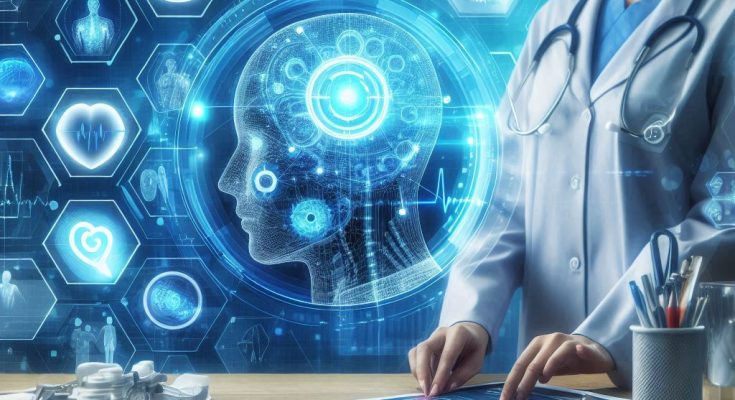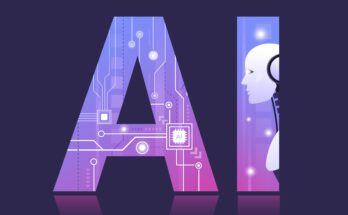How AI Is Used in Healthcare
AI leverages computers and machine processes to simulate human intelligence, enabling complex automated tasks. By sifting through vast volumes of data efficiently, AI identifies patterns, anomalies, and trends that would be challenging for humans to discern. Here are some key ways AI is transforming healthcare:
- Diagnosis and Disease Prediction:
- Machine learning (ML) algorithms analyze health records, aiding in disease diagnosis and predicting outcomes.
- Deep learning, a subset of ML, creates neural networks capable of complex tasks by processing large datasets.
- Personalized Treatment Plans:
- AI assists in tailoring treatment plans for patients facing critical illnesses like cancer.
- Robotic surgical equipment with AI provides real-time information during surgery, enhancing precision.
- Natural Language Processing (NLP):
- NLP interprets human language from verbal or written sources.
- In healthcare, NLP helps interpret documentation, notes, reports, and research.
- Robotic Process Automation (RPA):
- RPA automates administrative and clinical workflows, improving patient experiences and facility operations.
Applications of AI in Healthcare
- Diagnostic Accuracy:
- AI algorithms analyze medical images (such as X-rays, MRIs, and CT scans) to detect diseases early.
- Radiologists benefit from AI assistance in identifying subtle abnormalities.
- Drug Discovery and Development:
- AI accelerates drug discovery by predicting potential drug candidates and optimizing molecular structures.
- Researchers use AI to analyze vast datasets and identify novel therapeutic targets.
- Predictive Analytics:
- AI predicts disease outbreaks, patient readmissions, and treatment responses.
- Hospitals optimize resource allocation based on predictive models.
- Personalized Medicine:
- AI tailors treatment plans based on an individual’s genetic makeup, lifestyle, and medical history.
- Precision medicine improves patient outcomes and minimizes adverse effects.
- Healthcare Chatbots and Virtual Assistants:
- AI-powered chatbots provide instant responses, appointment scheduling, and health advice.
- Virtual assistants enhance patient engagement and streamline administrative tasks.
Benefits of AI in Healthcare
- Improved Diagnostics: AI enhances accuracy in disease detection, reducing false negatives and positives.
- Efficient Workflow: Automation frees up healthcare professionals’ time, allowing them to focus on patient care.
- Cost Savings: AI optimizes resource allocation, reduces unnecessary tests, and minimizes hospital stays.
- Patient Empowerment: AI-driven tools empower patients to manage their health proactively.
- Research Advancements: AI accelerates drug discovery and clinical trials.
Ethical Considerations
- Privacy and Data Security: Protecting patient data is crucial. AI systems must comply with privacy regulations.
- Bias and Fairness: Address biases in AI algorithms to ensure equitable healthcare outcomes.
- Transparency: Explainable AI is essential for building trust among patients and healthcare providers.
The Future of AI in Healthcare
As AI continues to evolve, we can expect:
- Personalized Treatment: AI-driven precision medicine tailored to individual needs.
- Healthcare Robotics: Advanced robotic systems assisting in surgeries and patient care.
- Collaboration: AI working alongside healthcare professionals for better outcomes.
In summary, AI is not just a buzzword; it’s a transformative force in healthcare. Stay informed, explore online courses, and be part of this exciting journey toward a healthier future.



